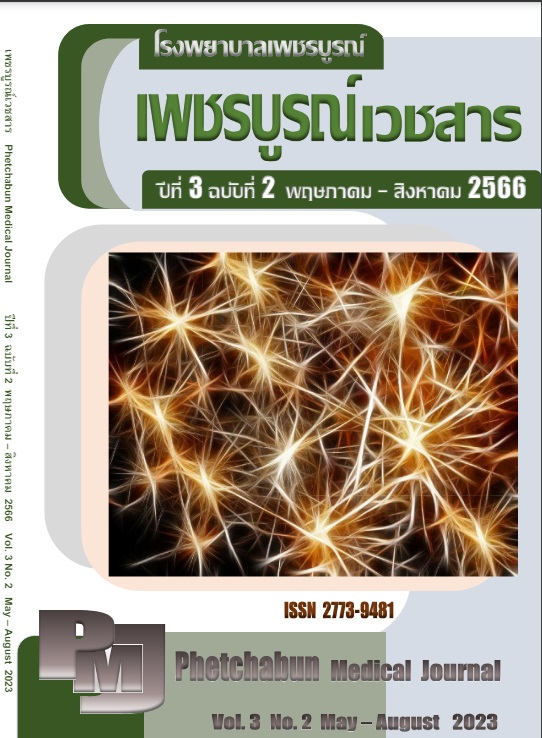Development of the medication reconciliation system in the inpatient department at Wichianburi hospital
Keywords:
Medication reconciliation, medication error, 3 P (purpose-process-performance)Abstract
Medication reconciliation (MR) is the process of finding discrepancies in the list of prescribed
medications to prevent medication errors during a patient's hospitalization and to ensure patients
receive maximum safety from drug utilization. The purpose of this quasi-experimental research was to
study the development effect of the medication reconciliation system in the inpatient department. The
sample was patients with chronic diseases admitted to the inpatient department at Wichian Buri
hospital. They were divided into 2 groups according to the study period: the control group was a group
of patients before the development of the system for 6 months (pre-period), which was from April 1,
2021 to September 30, 2021, totaling 4,976 patients, and the experimental group was after the
development of the system for 6 months (post period), which was from October 1, 2021 to March 31,
2022, totaling 5,240 patients. The overall sample was 10,216 patients. The research tools included the
developed medication reconciliation system based on the 3P concept (Purpose – Process – Performance),
a medication reconciliation list record form and a multidisciplinary team satisfaction assessment form.
Data were collected at the inpatient department from April 2021 to March 2022. Data were analyzed
using statistic including frequency, percentage, mean, standard deviation and chi-square test. The
statistical significance level was set at 0.05.
The results revealed that after the development of medication reconciliation process, all items
met the 3 P guidelines and all types of medication errors after system development were significantly
lower than before system development. The greatest decrease in medication errors after system
development was pre-dispensing error (3.6%,11.3%, p<0.001), followed by prescribing error (5.7%, 7.5%,
p<0.001), transcribing error (2.3%, 4.1%, p<0.001), dispensing error (0.4%, 1.0%, p<0.001) and administration
error (0.3%, 1.0%, p<0.001). In addition, the average satisfaction of multidisciplinary team personnel on
the developed medication reconciliation system was at a high level (Mean=4.25, S.D.=0.6). In conclusion,
the results of this study reflect the effectiveness of the developed medication reconciliation system
that therefore should be continuously implemented to reduce medication errors and patient safety
from the medication utilization.
Additional Files
Published
How to Cite
Issue
Section
License
Copyright (c) 2023 Phetchabun hospital

This work is licensed under a Creative Commons Attribution-NonCommercial-NoDerivatives 4.0 International License.



